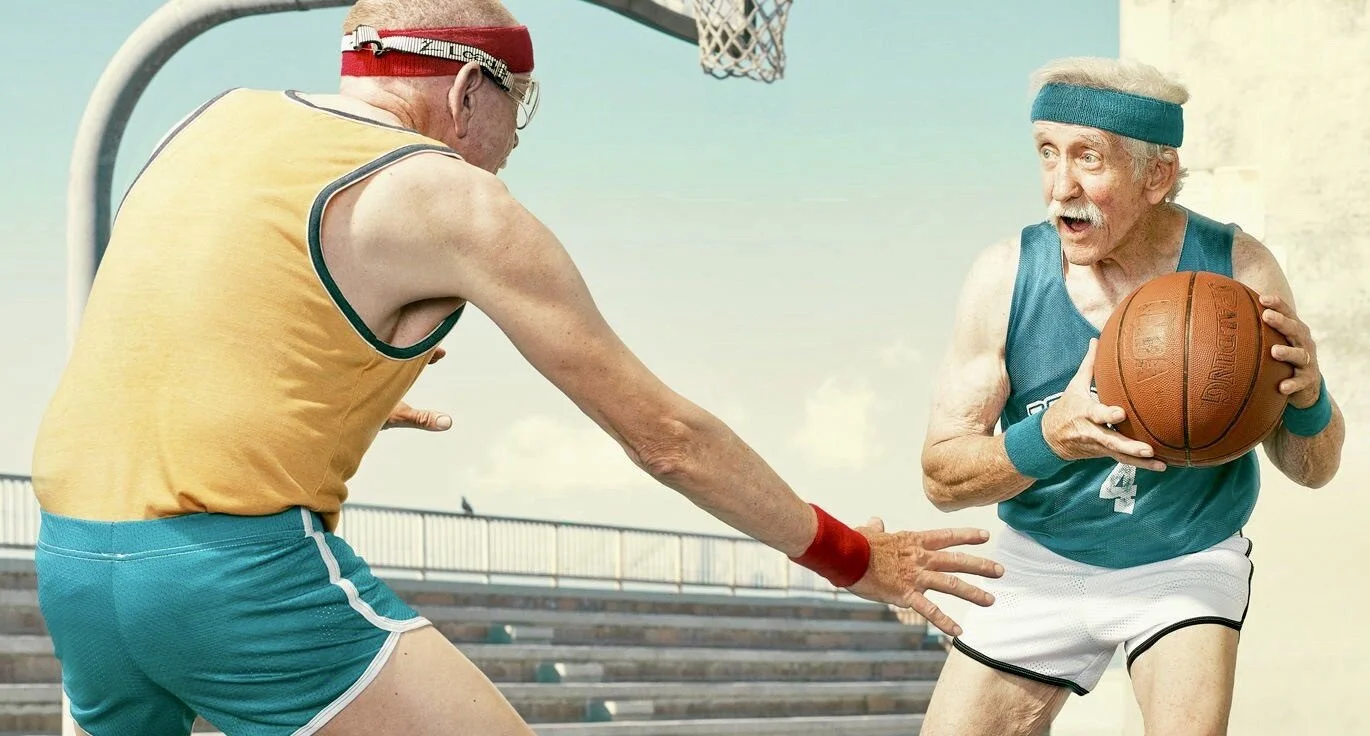I curate articles from around the web that present an interesting perspective or helpful information at the intersection of technology and wellbeing. Each of these articles were featured in my May & June 2020 newsletters. I send out an update twice a month along with some notes on my latest work. Sign up for my newsletter here.
MAY I
Tiny Habits for Sleep and Recovery
Has it felt a little like the movie Groundhog Day? Every day blending together.
With increased stress and anxiety along with an unmooring of our normal routines, it's all having an impact, particularly on our sleep.
I surveyed over 250 people last month and 46% said their sleep was either below average or very poor, which is troublesome because sleep is even more essential to our health and wellbeing right now.
To help, I recently did a talk on how to use the Tiny Habits® behavior change method to optimize your bedroom and your day for a rejuvenating night of sleep. (I also had a little fun taking this photo of me for my slide deck;)
In addition, I created a resource guide: Tiny Habits for Better Sleep. The guide is packed with tiny habit recipes, a chronotype guide, book recommendations, videos, meditations, top blog posts, product recommendations and a bunch of additional resources.
The talk just became available and is now posted on my site where you can watch it as well as download the resource guide.
The Real Lord of the Flies
I wanted to end on a hopeful note with this article from The Guardian debunking the legendary story the Lord of the Flies.
You remember the story of how a stranded bunch of kids descend into selfish hedonism and brutality, with several boys ending up dead by the time they are rescued. We're left to believe that is our true human nature revealing itself.
Turns out, we’d actually turn to cooperation to survive.
In the mid-1960s, six boys were shipwrecked on a tiny, forgotten island at the far end of the Polynesian archipelago of Tonga. For over a year, they all survived with the help and hard work of each other, even after one of them broke his leg.
"Then he saw a boy. Naked. Hair down to his shoulders. This wild creature leaped from the cliffside and plunged into the water. Suddenly more boys followed, screaming at the top of their lungs. It didn’t take long for the first boy to reach the boat. 'My name is Stephen,' he cried in perfect English. 'There are six of us and we reckon we’ve been here 15 months.'"
In the mass of today's tough global news, I found their story an inspiring message for humanity.
P.S. Back in February (seems like a different time), I shared Above & Beyond's Flow State album, which continues to be on regular rotation while I create and work. They've just released a new companion album, Flow State Meditations, which is beautiful and calming. Take one deep breath.
MAY II
Creatures of Habit
"Habits are just a series of solutions to recurring problems."
... one of the definitions of habits New York Times bestselling author of Atomic Habits, James Clear, shared with fellow author Sam Harris for his Making Sense podcast.
Habits aren't a goal line. You don't reach a habit after 30 days or 60 days or whatever timeframe. It's about putting a system in place. Context has just as much of an impact. It's a solution to a recurring problem.
And why are bad habits so hard to break? The cost of your good habits is in the present, like working out, while the cost of your bad habits, like eating that delicious, piece of cake, is in the future.
He also talked about goals and habits and why goals are great to give you direction. They're also helpful as a filtering mechanism if someone asks you to do something. You can ask yourself, does it match with my goals?
Otherwise, he says, goals should go on the shelf and we should focus on systems, our habits.
The full interview is worth a listen, even if you've read Atomic Habits.
How to Be Fit at 100: The Centenarian Olympics
Building systems and habits for longevity and wellbeing is the overarching goal. Being agile and mobile for as long as possible is key to enjoying a long healthspan.
In this essay, Mehdi Yacoubi, makes the case for playing the long game and practice for the Centenarian Olympics.
He quoted longevity & wellness expert Dr. Peter Attia explaining how you should think of the things you want to be able to do at age 100. "For example, he wants to be able to do the following things at age 100:
Get up off the floor with his support.
Pull himself out of a pool.
Pick up a child that’s running at him.
Walk up and down three flights of stairs with 10 lbs. of groceries in each hand.
Lift a 30 lb. suitcase and put it in the overhead bin
As it is a genuinely personal endeavor, there is no one-size-fits-all approach that everyone can implement. "
Yacoubi outlines four pillars to prepare:
Stability
Adequate strength
Aerobic efficiency
Anaerobic performance
Check out the full article on Medium.
JUNE I
How The 'Lost Art' Of Breathing Can Impact Sleep And Resilience
Breathing is automatic. But when we manage the way we breath, we can reduce anxiety & improve our health, happiness & longevity.
"In the new book 'Breath,' journalist James Nestor, writes about many aspects of how we breathe and how we can train ourselves to breathe in ways that may improve our health and the quality of our sleep and decrease anxiety."
In this NPR interview, Nestor talks about the history of breathing and convinced me to breathe through my left nostril to ease anxiety. You can listen to the 30 minute interview or read the full transcript here.
